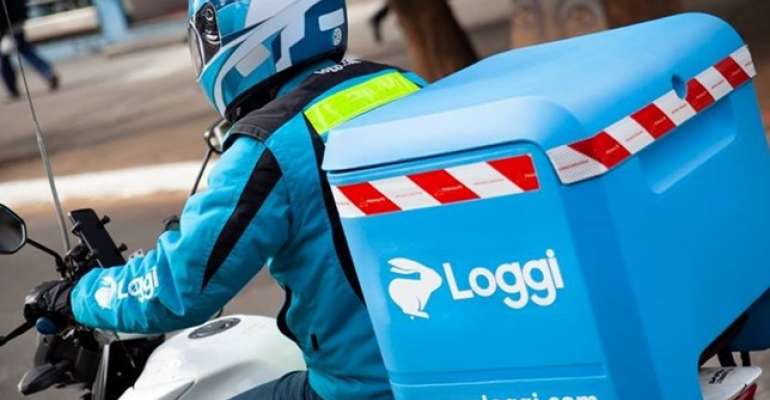By Lucas Agrela
The macroeconomic scenario with inflation and high-interest rates has taken the liquidity out of the market and made life more difficult for startups that need to raise investments to survive.
Last year, these companies raised US$4.46 billion in investments against US$9.8 billion in 2021, according to Distrito.
The severe drop in money has forced both sides of the counter to adopt new criteria in negotiating these investments.

If before investment funds – and the startups themselves – sought growth at all costs, now it’s a different story.
The scarcity of capital has made it necessary for startups to have, from the beginning, a plan to keep up with the bills – without counting on contributions to continue the growth trajectory.
Besides the business having the right product for its market, the fundamentals started to matter more in the funds’ investment decision.
In the view of Karina Rossi, a specialist in the crowdfunding platform for startups SMU Investimentos, there is a consensus in the sector that there has been euphoria, an exaggeration on the part of startups in recent years.
For this reason, the funds and the companies themselves are more restrained in their actions.
“It seemed like it was a race of the coolest, with sneakers and home office kits for employees. Thinking about all the layoffs, it would have been better not to have spent that capital and kept more staff.”
“Not that these are not important measures for engagement, they are necessary. But when the capital shortage comes, all this seems redundant,” she says.
Last year alone, there were almost 4,000 layoffs in the “unicorn” startups (valued at over US$1 billion) – and the movement continues this year, with cuts in names like iFood, Loft, Olist, Loggi, and Neon.
The “spending spree” was a way to draw attention in the market to attract the best professionals.
And due to this, startups in Brazil and around the world were growing and surviving thanks to investors’ money.
Still, without a defined direction or without being able to reach the top of the segment, startups used all the available capital to win customers.
In other words, they were companies that went into the red and covered the hole in their accounts with new contributions from funds.

Now, accelerated growth at all costs is no longer well regarded as it used to be.
The business plan needs to have clarity regarding the primary sources of revenue.
“With every transaction, a fast-growing startup loses money instead of earning it. This type of company used to gain investment because people believed that market leadership would come, and with that, they improved the financials. Now, investors look for this financial health from the beginning,” says Thiago Maluf, partner at Igah Investimentos.
The greater rigor in the contributions is also present in Iporanga Ventures, one of Loggi’s first investors.
Renato Valente, a partner of the fund, says he prefers startups that have the business more “rounded”, i.e., that already know what the revenue source will be.
“When we make the first check, we look at whether it will be possible to build a company with it, whether it will be possible to reach the next stage and raise more capital, or whether, perhaps, it will take a little longer for the next round and it will be necessary to have a slightly longer capital trail,” he says.
The new economic context has also changed the period that funds have to evaluate investment proposals, which used to be only a week – now there is more time to negotiate.
In its history, Igah Ventures has already made 46 investments and has 25 companies in its portfolio.
For this year, it has already invested US$20 million in Dattos, an accounting software company, and is analyzing other cases more calmly than before.
This is a time of market adjustment.
For Maluf, the increased time to evaluate the possibility of making investments and becoming a startup business partner is positive for all parties involved.
In the company’s investments, which are made considering a horizon of four to five years, the deadline for an answer to an investment proposal is between 6 and 10 weeks, taking up to four months for the money to be in the startup’s account.
Diogo Garcia, leader of the Emerging Giants innovation program at KPMG, says that greater caution does not necessarily mean that the capital has disappeared from the market, although some investors are waiting.
“This is a time of market adjustment. The startups that prove they have done a good job, understand who the customers are, and have good business models and good margins, will continue on a relevant growth journey. Some fundraising has been on standby. But there is still money to be invested in startups that prove their worth,” he says.
CORPORATE STRUCTURE
In addition to greater financial rigor, startups must be born ready for success, minimizing mistakes that can cost the operation dearly.
This is the vision of Brian Requarth, co-founder and CEO of the startup hub Latitud, which advises Latin American companies on developing their business globally and attracting investment.
“The new profile of startups that win VC funding in 2023 already starts with the right corporate structure. This is the first and fundamental warning because many startups only realize this too late.”
“I include myself in this: my previous company, VivaReal, lost US$100 million in unnecessary taxes because of the wrong corporate structure.”
“Besides the loss due to tax issues, investors stop putting money into your business if you have the wrong corporate structure.”
“Nobody is going to force the startup to change its corporate structure because they know the costs that this brings, but it is a negative point and contributes to the decline of the investment,” he says.
Requarth also says that the company structure needs to be adequate to the business’s growth potential without being limited to only one country, such as Brazil.
Instead, startups have also been betting on operations in the United States, and the most used today is Delaware LLC.
“We call the whole structure of the Brazilian company + Delaware LLC Delaware Tostada exactly because it has two layers, just like a buttered toast or an avocado toast”, he says.
Three startups following the mentioned model are fintechs Stockash, Raiz, and cleantech Planty.
Brian Requarth, founder and CEO of the startup hub Latitud says that companies must be ready to grow to attract investments.
Estadão found out that funds such as Canary, Maya Capital, Norte Capital, ONEVC, and 500 Startups use the operation in the two countries as one of the investment criteria, as does the Latitud Fund itself.
THE MINIMUM INVESTMENT
For some startups, another way is to stay as far away as possible from venture capitalists in the early years of the business and only raise money when the company has well-defined sources of revenue and the accounts are in the blue.
This was the case with RecargaPay, founded in 2009.
The series A round was for the startup to get off the ground.
The extension came only five years later, in 2014. In 2017, already with eight years of history, it reached the B series, while the C series was only in 2021.
Diego Escobar, RecargaPay’s chief financial officer, says that slower growth can be a solution for companies that start operating with a well-defined business strategy.
“It’s up to each company to know how far it can swim until it returns to its safe harbor. When it is necessary to overgrow, the core of the business cannot be harmed,” he says.
With information from Estadão

